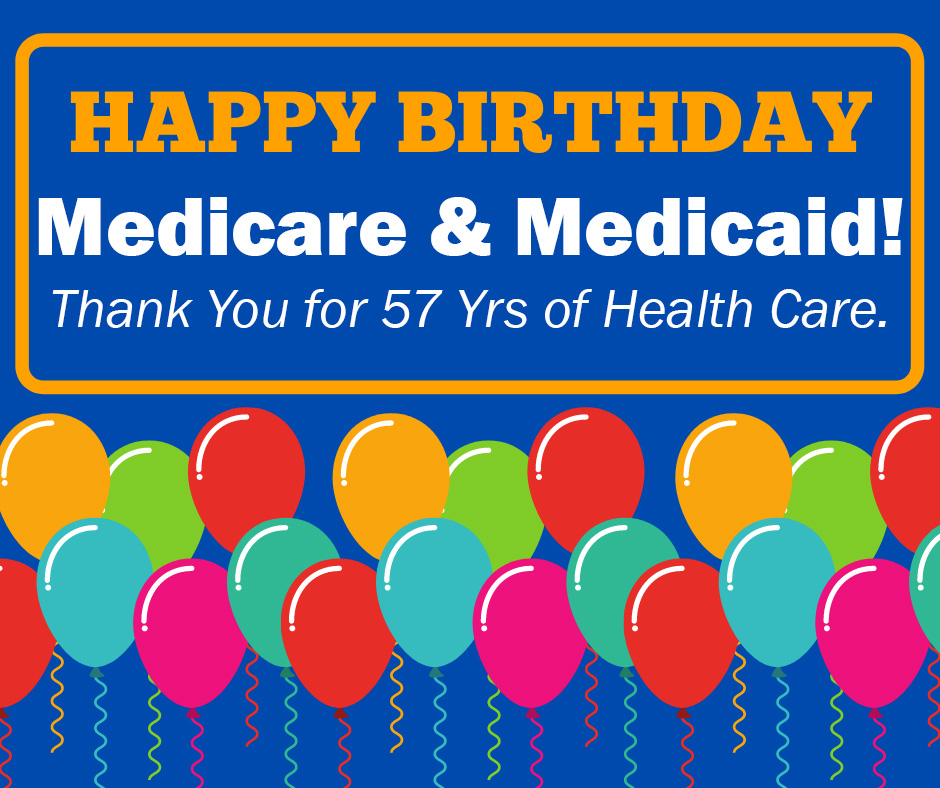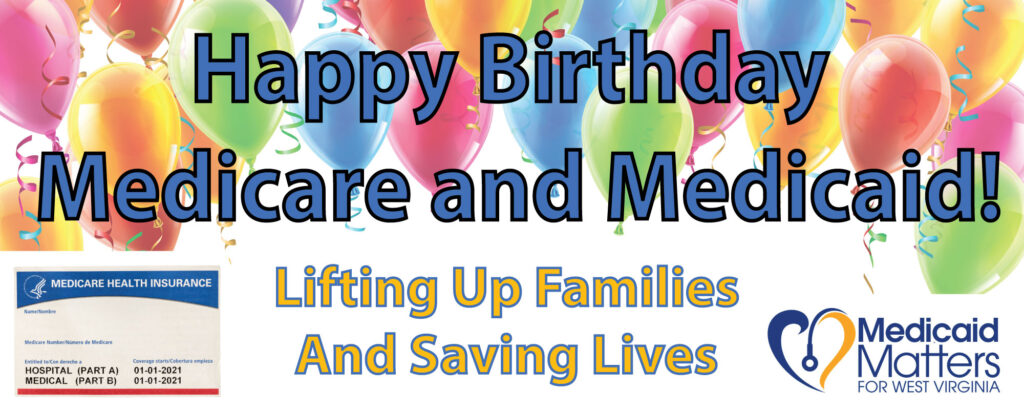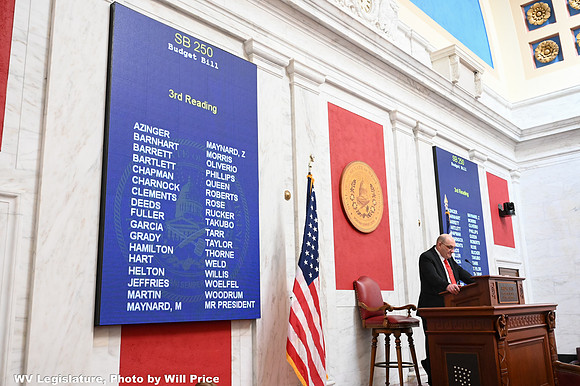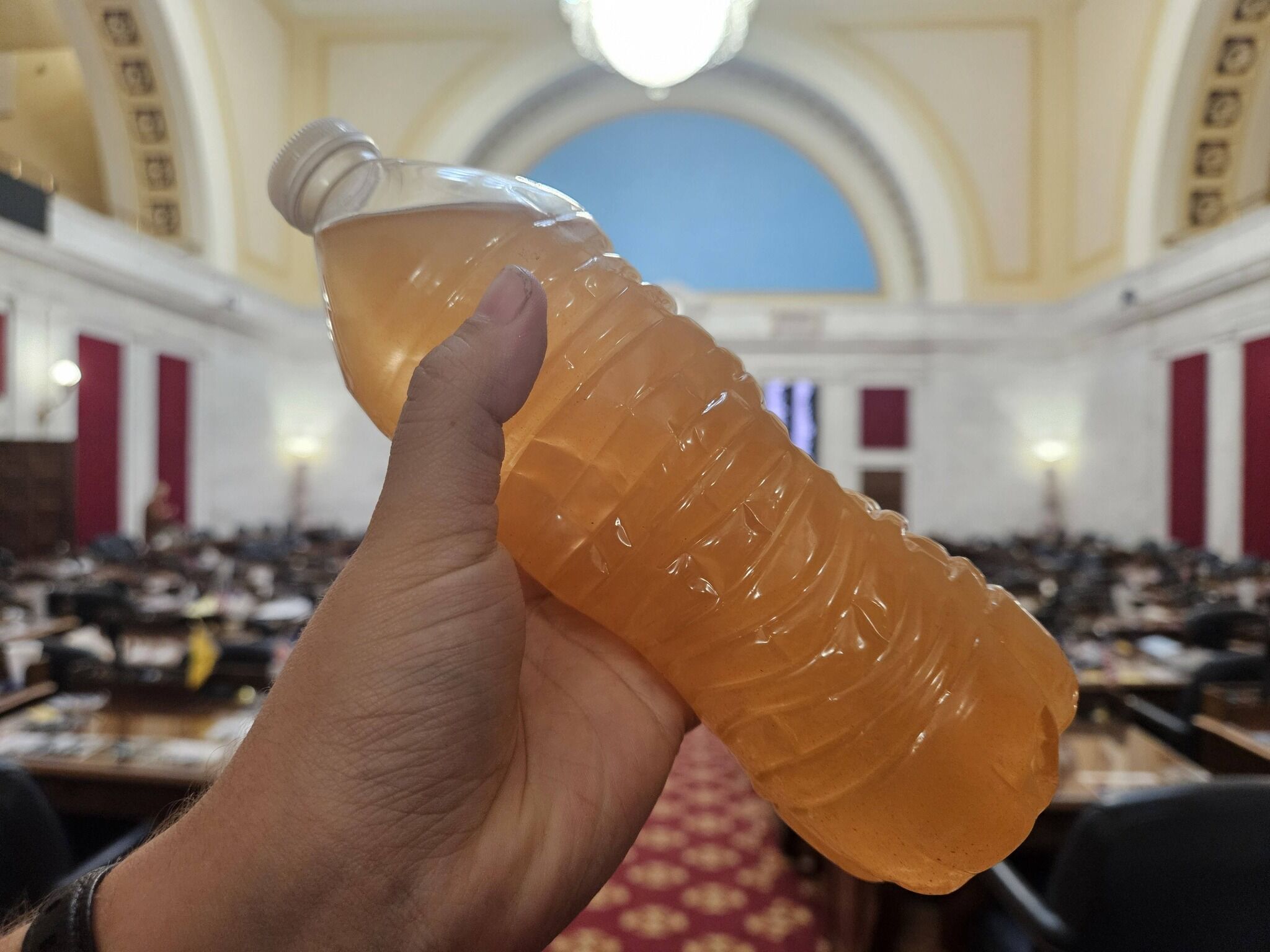- Like
- Digg
- Del
- Tumblr
- VKontakte
- Buffer
- Love This
- Odnoklassniki
- Meneame
- Blogger
- Amazon
- Yahoo Mail
- Gmail
- AOL
- Newsvine
- HackerNews
- Evernote
- MySpace
- Mail.ru
- Viadeo
- Line
- Comments
- Yummly
- SMS
- Viber
- Telegram
- Subscribe
- Skype
- Facebook Messenger
- Kakao
- LiveJournal
- Yammer
- Edgar
- Fintel
- Mix
- Instapaper
- Copy Link
2022 MEDICAID/MEDICARE ANNIVERSARY
Much to Celebrate and Still Much To Do As They Turn 57 Years Old
[Video from Saturday Anniversary Event: youtu.be/dlm_3cx8zNU]
No matter where someone lives, what they look like or how much money they have, everyone needs access to quality, affordable healthcare. Medicaid is a family health program for people of all ages that has become even more critical during the last two years of the COVID pandemic when millions of Americans lost jobs and health coverage. Medicare is the one program that has reduced Senior poverty more than any other.
Medicaid & Medicare were signed into law in 1965 and are now the nation’s largest health care programs, Medicaid & CHIP insure over 87 million people nationwide, including 617,404 adults and children in WestVirginia. These programs have a proven track record of improving health outcomes, enhancing economic security and reducing racial health disparities. Nearly a quarter of our state’s residents, 443,555 are enrolled in Medicare in West Virginia, All together these public programs cover nearly 60% of our population!
Medicaid:
- The leading financer of family planning and birth control services and the leading financer of births. 45% of births are paid for by Medicaid in our state
- The leading payer of long-term care for the elderly and people with disabilities including home based and community services and nursing home care.
- The largest payer of mental and behavioral health services like addiction treatment and mental illness counseling.
- Medicaid is the single largest source of federal funding to states. Matching federal & state Medicaid funding makes up 22.5% of our state’s budget.
Medicare:
- As of 2019, 19% of Medicare beneficiaries in West Virginia were under 65 and eligible due to a disability.
- The elderly’s poverty rate has declined dramatically since Medicare was enacted – from 29 percent in 1966 to 10.5 percent in 1995.
Just as in every other past national crisis, they have been a critical source of healthcare during the pandemic and will continue to be a pillar of the healthcare system for children, women, low-wage workers and seniors. During the pandemic, Congress passed multiple relief bills to shield Americans from the worst consequences of the public health crisis and economic slowdown that increased access to Medicaid.
Medicaid has been a critical resource because it is a counter-cyclical program–that means more people become eligible and enroll during economic downturns. Medicaid enrollment increased by over 12 million, or by more than 17percent through during the first year of the pandemic thanks to increased funding and streamlined enrollment that eliminated bureaucracy as well as continuous coverage that accommodated changes in employment and coverage that were very frequent and fluid during the COVID.
Finishing the Job: Congress still has an opportunity this year to finish the job of fully implementing the Medicaid provisions of the Affordable Care Act by creating an opportunity for people who are in the Medicaid coverage gap in a dozen states that have not yet expanded Medicaid. In these states, millions of people lack access to affordable coverage because of political gridlock. Eight out of the twelve non-expansion states are in the South.
A federal solution to the Medicaid coverage gap would not only shrink the number of uninsured people and finally provide coverage for millions who haven’t had access, but it would narrow the gap between Black and Brown Americans and the white population. People of color in the United States are more likely to be in low-wage jobs that don’t offer affordable health coverage, more likely to be without insurance and more likely to have chronic health conditions that require treatment.
Over 60% of people in the Medicaid coverage gap are people of color and over 550,000 are “essential workers” in jobs like food service, child care, domestic work and others. Between 2011 and 2021, the average cost of family health insurance rose by 47 percent,outpacing workers’ earnings (up 31 percent) and inflation (up 19 percent), pricing many working families out of coverage.
In many states, the rising price of prescription drugs also contributes to increasing healthcare premiums that make insurance unaffordable for millions (See two examples: Vermont and Oregon). Prescription drug reform to lower prices is also a key priority for Congress this year.
It’s time for Congress to step in and guarantee equal access to coverage for everyone, no matter where they live or what they look like or what kind of job they have. There’s never been a better time than now.
- Congress is expanding access to coverage and making healthcare more affordable with legislation to lower drug prices in Medicare, stop drug corporations from raising prices faster than inflation and extending premium tax credits that make private coverage more in the ACA marketplaces more affordable for over 13 million people who would otherwise pay more or lose coverage.
- Congress must also act to close the Medicaid coverage gap by giving people in the non-expansion states the opportunity to get their coverage directly from the federal ACA exchange so that their zip code doesn’t not lock them into non-coverage perpetually.
Lack of access to affordable, reliable coverage puts too many Americans at risk for economic insecurity. Millions of people incur medical debt that damages their credit and impedes their ability to get housing, further their education or provide for their children all because they didn’t have adequate coverage. The dozen states without Medicaid expansion have the highest rates of medical debt, which is not the top source of all U.S. debt. One in four people with medical debt in collections is a person of color.
It doesn’t have to be this way. Quality, affordable, accessible health coverage is an essential component of economic security for families in our country and it is within our reach to guarantee opportunity for everyone to get it and keep it.
WV Citizen Action – www.wvcag.org 304.346.5891 Gary Zuckett, E.D. 304.437.3701
RESOURCES:
CBPP: States Can Take Action Now to Preserve Medicaid Coverage When PHE Expires
Protect Our Care: How the American Rescue Plan Strengthens Medicaid Coverage
https://www.protectourcare.org/how-the-american-rescue-plan-strengthens-medicaid-coverage/
Urban Institute: Allowing ARPA tax credits to expire would reverse recent progress





